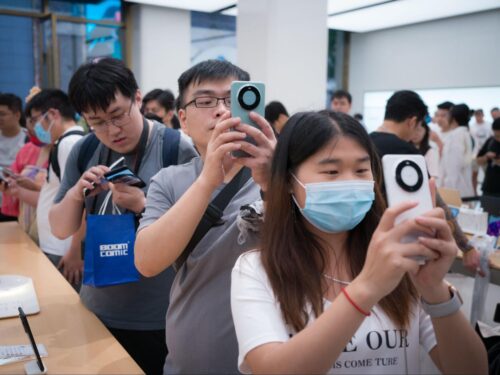The shocking arrest of Huawei CFO Meng Wanzhou in Canada: ZTE redux — or worse?

The timing of the arrest and extradition request is rich. While the law enforcement action against Huawei has been in the works for some time, that Huawei’s CFO and company founder offspring Mèng Wǎnzhōu 孟晚舟 would choose to travel to Canada on the day President Donald Trump and Chinese leader Xí Jìnpíng 习近平 were meeting in Buenos Aires at the G20 may go down as one of the most ironic chance occurrences in U.S.-China relations ever. The U.S. action was also unprecedented. While officials from other, mostly small companies have been swept up in law enforcement actions around long-standing sanctions against cooperation with Iran, this week’s events certainly take U.S. efforts to push back on China across the board to new and uncharted territory. Targeting a senior executive at such a large multinational has not been done before, and the end game remains unclear: Extradition to the U.S. is likely, but will Meng be incarcerated, used as part of an exchange of arrested citizens, or will her case become a major leverage point for the upcoming U.S.-China trade negotiations?
The Chinese government reaction has been swift and harsh, with demands for clarification of the charges and the release of Meng. Some official media have accused the U.S. of committing a “hooligan act,” aimed at tarnishing Huawei’s international reputation. Social media has also lit up with calls for Chinese government support for the company, along with Chinese netizens claiming they will ditch Apple for Huawei for their next smartphone. Beijing will be reluctant to stoke the nationalist fervor the event is generating, but on the heels of other U.S. actions such as the arrest of an intelligence officer in Brussels, the ZTE case, STEM visa restrictions, and the perception that the U.S. is bullying China on trade, Beijing may not be able to fully control the response.
It remains unclear whether the action was fully coordinated within the U.S. government, but now the deed is done. It is likely to precipitate a personal call from Xi to Trump, which occurred with the previous criminal case against ZTE that almost bankrupted the company. Xi and Chinese officials will want to gauge the likelihood that a similar action — eventual inclusion of the company on the Commerce Department’s dreaded Entity List — is in the offing for Huawei. The stakes of such a move on the U.S. side are significantly higher than in the case of ZTE, which was bad enough from the perspective of the Chinese government and company.
Huawei is a much bigger fish globally than ZTE. Huawei’s gear is used around the globe in key networks in Germany, the U.K., Italy, Africa, and the Middle East. A cutoff of Huawei access to U.S. technology stemming from a potential Entity List designation would immediately put at risk these networks. While Huawei is not as dependent on U.S. suppliers as ZTE, the firm still relies heavily on U.S. firms for key semiconductor and software for key components — Microsoft, Qualcomm, and Intel for starters. Huawei has its own semiconductor design shop, which is rapidly coming up the curve but cannot yet compete on the high end of, say, modems, with the likes of Qualcomm. In short, any action against Huawei that limited its ability to obtain current or next-generation technology from the U.S. would not be well received either in Beijing or in European capitals, making this a very different kettle of fish than the ZTE case.
Given President Trump’s reluctance to preside over the demise of ZTE, it is likely that he will intervene in some way in this case, particularly if he really believes that the Chinese are willing to embark on serious negotiations on the knotty trade issues raised by the U.S. Trade Representative. Showing leniency to Huawei now seems almost like a prerequisite for a successful outcome to the talks, but Trump will have to weigh this against what would likely be major blowback — as there was for his bailout of ZTE — from Congress and other critics of China. Regardless of where this case takes us, there is still the longer-term issue of how U.S. allies will deal with banning Huawei equipment from their core networks. The U.S.-China Tech Cold War has just entered into a new and uncharted phase, and it won’t get any easier…






